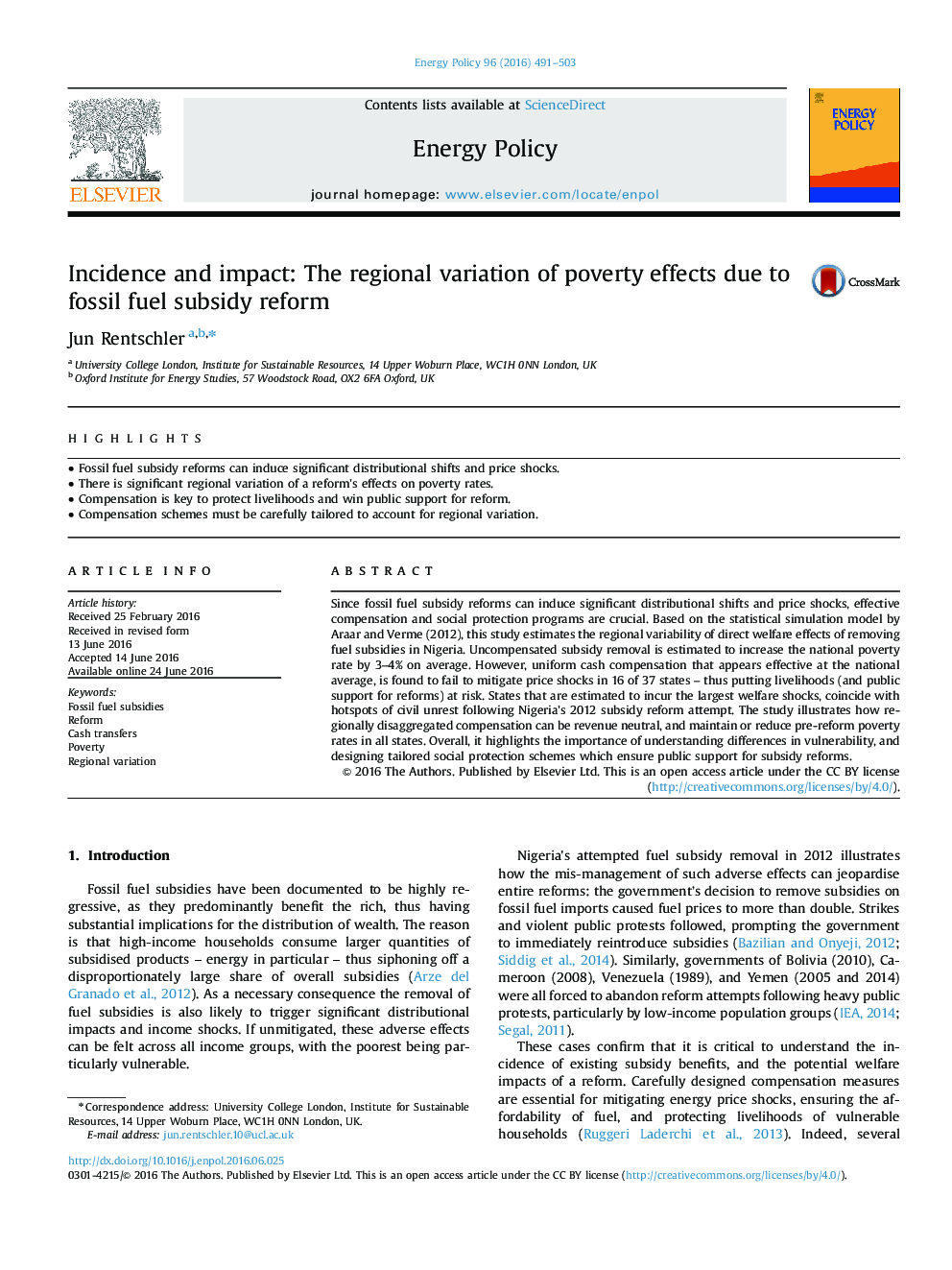| Article ID | Journal | Published Year | Pages | File Type |
|---|---|---|---|---|
| 7398776 | Energy Policy | 2016 | 13 Pages |
Abstract
Since fossil fuel subsidy reforms can induce significant distributional shifts and price shocks, effective compensation and social protection programs are crucial. Based on the statistical simulation model by Araar and Verme (2012), this study estimates the regional variability of direct welfare effects of removing fuel subsidies in Nigeria. Uncompensated subsidy removal is estimated to increase the national poverty rate by 3-4% on average. However, uniform cash compensation that appears effective at the national average, is found to fail to mitigate price shocks in 16 of 37 states - thus putting livelihoods (and public support for reforms) at risk. States that are estimated to incur the largest welfare shocks, coincide with hotspots of civil unrest following Nigeria's 2012 subsidy reform attempt. The study illustrates how regionally disaggregated compensation can be revenue neutral, and maintain or reduce pre-reform poverty rates in all states. Overall, it highlights the importance of understanding differences in vulnerability, and designing tailored social protection schemes which ensure public support for subsidy reforms.
Related Topics
Physical Sciences and Engineering
Energy
Energy Engineering and Power Technology
Authors
Jun Rentschler,
